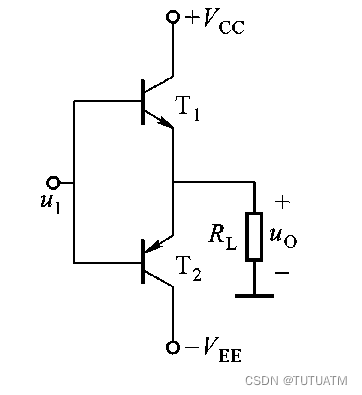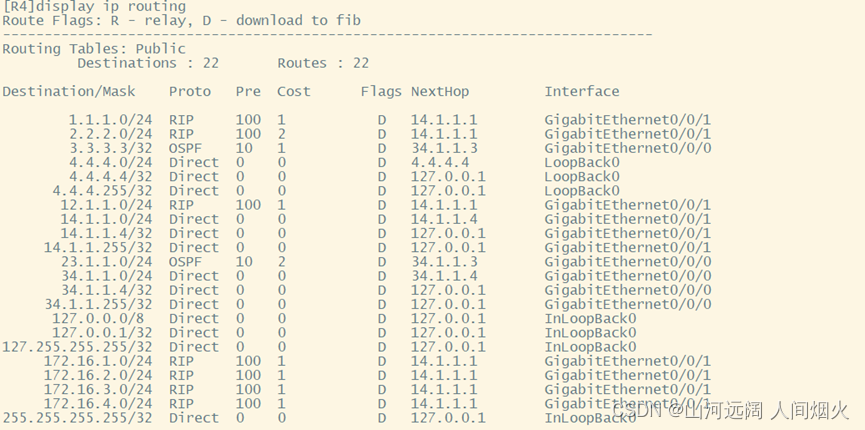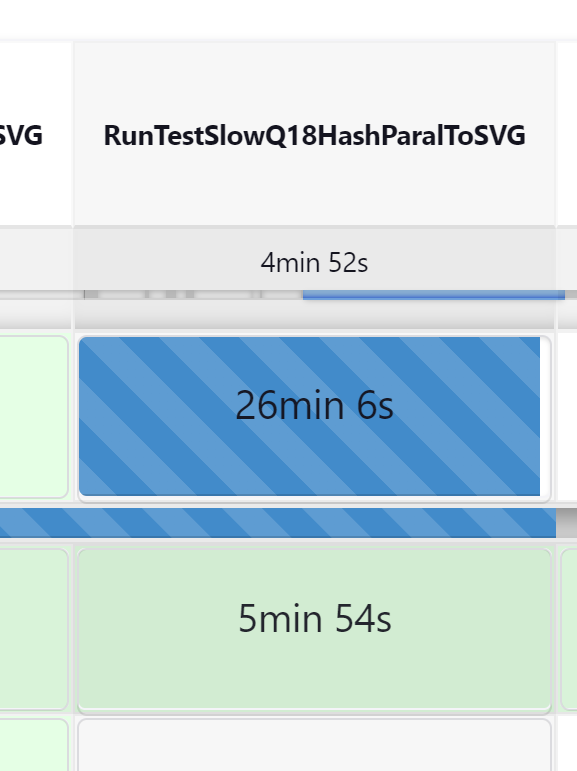当前位置:网站首页>utils timer
utils timer
2022-08-03 22:25:00 【Zip-List】
Timer as a common tool,要好好掌握.
整体思路
CTimer代表一个loop的线程
CTimerManager是一个CTimer的容器(map<id, CTimer*>)
同时CTimer是一个std::list<TTimerReq>容器.
即
CTimer1: [1(11ms), 3(12ms), 2(13ms), 4(14ms)]
CTimer2: [1(11ms), 3(12ms), 2(13ms), 4(14ms)]
CTimer中根据The timeout period is from small to largeEach callback function is savedID,The callback is passed andCTimer绑定的CTimerListener实现的.CTimerListenerCan be a singleton class object that inherits from it,可以是一个全局的session_waiting_context对象等等.
typedef struct
{
uint32_t reqId;
TTimeSpec timeout;
} TTimerReq;
头文件
#pragma once
#include <list>
#include <atomic>
#include <string>
#include <pthread.h>
#include <mutex>
using TTimeSpec = struct timespec;
typedef struct
{
uint32_t reqId;
TTimeSpec timeout;
} TTimerReq;
class CTimerListener;
class CTimer
{
public:
CTimer(const std::string &name, uint32_t timerId, CTimerListener *timerListener);
virtual ~CTimer();
bool start(uint32_t msec, uint32_t reqId = 0);
bool stop(uint32_t reqId = 0);
private:
CTimer(const CTimer &);
CTimer &operator=(const CTimer &);
void onTimer(uint32_t reqId);
void onRun();
static void *threadFunc(void *arg);
void addRequest(TTimerReq req);
void notify();
private:
volatile uint32_t mTimerId;
CTimerListener *mTimerListener;
std::mutex mDataMutex;
std::list<TTimerReq> mTimerReqList;
std::string mThreadName;
std::atomic<bool> mThreadExitFlag{
false};
volatile bool mReqFlag;
pthread_t mThread;
pthread_attr_t mThreadAttr;
pthread_mutex_t mThreadmutex;
pthread_condattr_t mCondAttr;
pthread_cond_t mCondition;
};
#pragma once
#include <map>
#include <mutex>
#include <string>
#define TIMER_MGR CTimerManager::getInstance()
class CTimerListener
{
public:
CTimerListener() {
}
virtual ~CTimerListener() {
}
virtual void onTimer(uint32_t id) = 0;
};
class CTimer;
class CTimerManager
{
public:
CTimerManager();
virtual ~CTimerManager();
static CTimerManager *getInstance();
static void destroy();
bool createTimer(const std::string &name, CTimerListener *timerListener);
bool createTimer(const std::string &name, uint32_t id, CTimerListener *timerListener);
bool startTimer(uint32_t id, uint32_t msec, uint32_t sub_id=0);
bool stopTimer(uint32_t id);
private:
CTimerManager(const CTimerManager &);
CTimerManager &operator=(const CTimerManager &);
private:
static CTimerManager *mInstance;
static std::mutex mDataMutex;
CTimer *mTimer;
std::map<uint32_t, CTimer *> mTimerMap;
};
主循环
主循环loopWhether the callback of the current team head can be executed,Continue to wait for the condition if it has not timed out sleepTime+1ms,It will definitely work the next time you wake up,Nor will it be invalidloop浪费cpu
void CTimer::onRun()
{
// int pri = getpriority(PRIO_PROCESS, gettid());
pthread_setname_np(mThread, mThreadName.c_str());
uint32_t sleepTime = THREAD_INFINITE;
while (!mThreadExitFlag)
{
pthread_mutex_lock(&mThreadmutex);
if (!mReqFlag)
{
if (THREAD_INFINITE != sleepTime && 0 != sleepTime)
{
TTimeSpec awakeTime{
0x00};
getTimeSpec(&awakeTime, sleepTime);
pthread_cond_timedwait(&mCondition, &mThreadmutex, &awakeTime);
}
else
{
pthread_cond_wait(&mCondition, &mThreadmutex);
}
}
mReqFlag = false;
pthread_mutex_unlock(&mThreadmutex);
{
std::unique_lock<std::mutex> lock(mDataMutex);
while (!mTimerReqList.empty())
{
TTimerReq curReq = mTimerReqList.front();
TTimeSpec curTime{
0x00};
getTimeSpec(&curTime, 0);
int tmptime = subTimeSpec(&curReq.timeout, &curTime);
if (tmptime <= 0)
{
mTimerReqList.pop_front();
lock.unlock();
onTimer(curReq.reqId);
lock.lock();
}
else
{
sleepTime = tmptime + 1;
break;
}
}
if (mTimerReqList.empty())
{
sleepTime = THREAD_INFINITE;
}
// lock.unlock();
}
}
}
添加定时器
1 According to the size of the timeout,Add to the team in an orderly manner.
2 If it is a timer added at the head of the queue,需要发送信号,The main loop in the wake-up condition wait,Reset the condition to wait for the wake-up time
void CTimer::addRequest(TTimerReq req)
{
std::unique_lock<std::mutex> lock(mDataMutex);
bool needNotify = false;
auto iter = mTimerReqList.begin();
for (; iter != mTimerReqList.end(); ++iter)
{
if (iter->reqId == req.reqId)
{
if (iter == mTimerReqList.begin())
{
needNotify = true;
}
iter = mTimerReqList.erase(iter);
break;
}
}
if (!mTimerReqList.empty())
{
for (iter = mTimerReqList.begin(); iter != mTimerReqList.end(); ++iter)
{
if (subTimeSpec(&req.timeout, &iter->timeout) < 0)
{
if (iter == mTimerReqList.begin())
{
needNotify = true;
}
break;
}
}
}
else
{
needNotify = true;
}
mTimerReqList.insert(iter, req);
if (needNotify)
{
notify();
}
}
cpp文件
#include "CTimer.hpp"
#include "CTimerManager.hpp"
CTimerManager *CTimerManager::mInstance = nullptr;
std::mutex CTimerManager::mDataMutex;
CTimerManager::CTimerManager() : mTimer(nullptr)
{
}
CTimerManager::~CTimerManager()
{
if (nullptr != mTimer)
{
delete mTimer;
mTimer = nullptr;
}
else
{
auto iter = mTimerMap.begin();
for (; iter != mTimerMap.end(); ++iter)
{
delete iter->second;
iter->second = nullptr;
}
}
}
CTimerManager *CTimerManager::getInstance()
{
std::unique_lock<std::mutex> lock(mDataMutex);
if (nullptr == mInstance)
{
mInstance = new CTimerManager();
}
return mInstance;
}
void CTimerManager::destroy()
{
std::unique_lock<std::mutex> lock(mDataMutex);
if (nullptr != mInstance)
{
delete mInstance;
mInstance = nullptr;
}
}
bool CTimerManager::createTimer(const std::string &name, CTimerListener *timerListener)
{
std::unique_lock<std::mutex> lock(mDataMutex);
bool ret = false;
if (mTimerMap.empty())
{
if (nullptr == mTimer)
{
mTimer = new CTimer(name, 0, timerListener);
}
if (nullptr != mTimer)
{
ret = true;
}
}
return ret;
}
bool CTimerManager::createTimer(const std::string &name, uint32_t id, CTimerListener *timerListener)
{
std::unique_lock<std::mutex> lock(mDataMutex);
bool ret = false;
if (nullptr == mTimer)
{
if (mTimerMap.find(id) == mTimerMap.end())
{
CTimer *timer = new CTimer(name, id, timerListener);
if (nullptr != timer)
{
mTimerMap[id] = timer;
ret = true;
}
}
else
{
ret = true;
}
}
return ret;
}
bool CTimerManager::startTimer(uint32_t id, uint32_t msec, uint32_t sub_id)
{
std::unique_lock<std::mutex> lock(mDataMutex);
bool ret = false;
if (nullptr != mTimer)
{
mTimer->start(msec, id);
ret = true;
}
else if (mTimerMap.find(id) != mTimerMap.end())
{
mTimerMap[id]->start(msec, sub_id);
ret = true;
}
else
{
}
return ret;
}
bool CTimerManager::stopTimer(uint32_t id)
{
std::unique_lock<std::mutex> lock(mDataMutex);
bool ret = false;
if (nullptr != mTimer)
{
mTimer->stop(id);
ret = true;
}
else if (mTimerMap.find(id) != mTimerMap.end())
{
mTimerMap[id]->stop();
ret = true;
}
else
{
}
return ret;
}
#include <unistd.h>
#include <sys/prctl.h>
#include <sys/resource.h>
#include <sys/syscall.h>
#include "CTimer.hpp"
#include "CTimerManager.hpp"
namespace
{
#define THREAD_STACK_SIZE (64 * 1024)
#define THREAD_INFINITE (0xFFFFFFFF)
void getTimeSpec(TTimeSpec *time, int msec)
{
TTimeSpec now{
0x00};
clock_gettime(CLOCK_MONOTONIC, &now);
time->tv_sec = now.tv_sec + msec / 1000;
time->tv_nsec = now.tv_nsec + (msec % 1000) * 1000000;
if (time->tv_nsec >= 1000000000)
{
time->tv_sec++;
time->tv_nsec -= 1000000000;
}
}
int subTimeSpec(TTimeSpec *time1, TTimeSpec *time2)
{
int ms =
time1->tv_sec * 1000 + time1->tv_nsec / 1000000 - (time2->tv_sec * 1000 + time2->tv_nsec / 1000000);
return ms;
}
}
CTimer::CTimer(const std::string &name, uint32_t timerId, CTimerListener *timerListener) : mTimerId(timerId), mTimerListener(timerListener), mTimerReqList(), mThreadName(name), mReqFlag(false)
{
int ret = 0;
// init mutex
ret = pthread_mutex_init(&mThreadmutex, nullptr);
if (0 != ret)
{
// log
}
// init condition variable
pthread_condattr_init(&mCondAttr);
pthread_condattr_setclock(&mCondAttr, CLOCK_MONOTONIC);
ret = pthread_cond_init(&mCondition, &mCondAttr);
if (0 != ret)
{
// log
}
// create thread
pthread_attr_init(&mThreadAttr);
pthread_attr_setstacksize(&mThreadAttr, THREAD_STACK_SIZE);
ret = pthread_create(&mThread, &mThreadAttr, threadFunc, this);
if (0 != ret)
{
// log
}
}
CTimer::~CTimer()
{
if (0 == mThread)
{
return;
}
{
std::unique_lock<std::mutex> lock(mDataMutex);
mTimerReqList.clear();
}
mThreadExitFlag = true;
pthread_cond_signal(&mCondition);
pthread_join(mThread, nullptr);
pthread_mutex_destroy(&mThreadmutex);
pthread_cond_destroy(&mCondition);
pthread_condattr_destroy(&mCondAttr);
pthread_attr_destroy(&mThreadAttr);
}
bool CTimer::start(uint32_t msec, uint32_t reqId)
{
TTimeSpec timeout{
0x00};
getTimeSpec(&timeout, msec);
TTimerReq req = {
reqId, timeout};
addRequest(req);
return true;
}
bool CTimer::stop(uint32_t reqId)
{
std::unique_lock<std::mutex> lock(mDataMutex);
bool needNotify = false;
auto iter = mTimerReqList.begin();
for (; iter != mTimerReqList.end(); ++iter)
{
if (iter->reqId == reqId)
{
if (iter == mTimerReqList.begin())
{
needNotify = true;
}
mTimerReqList.erase(iter);
break;
}
}
if (needNotify)
{
notify();
}
return true;
}
void CTimer::onTimer(uint32_t reqId)
{
if (nullptr != mTimerListener)
{
mTimerListener->onTimer(reqId);
}
}
void CTimer::onRun()
{
// int pri = getpriority(PRIO_PROCESS, gettid());
pthread_setname_np(mThread, mThreadName.c_str());
uint32_t sleepTime = THREAD_INFINITE;
while (!mThreadExitFlag)
{
pthread_mutex_lock(&mThreadmutex);
if (!mReqFlag)
{
if (THREAD_INFINITE != sleepTime && 0 != sleepTime)
{
TTimeSpec awakeTime{
0x00};
getTimeSpec(&awakeTime, sleepTime);
pthread_cond_timedwait(&mCondition, &mThreadmutex, &awakeTime);
}
else
{
pthread_cond_wait(&mCondition, &mThreadmutex);
}
}
mReqFlag = false;
pthread_mutex_unlock(&mThreadmutex);
{
std::unique_lock<std::mutex> lock(mDataMutex);
while (!mTimerReqList.empty())
{
TTimerReq curReq = mTimerReqList.front();
TTimeSpec curTime{
0x00};
getTimeSpec(&curTime, 0);
int tmptime = subTimeSpec(&curReq.timeout, &curTime);
if (tmptime <= 0)
{
mTimerReqList.pop_front();
lock.unlock();
onTimer(curReq.reqId);
lock.lock();
}
else
{
sleepTime = tmptime + 1;
break;
}
}
if (mTimerReqList.empty())
{
sleepTime = THREAD_INFINITE;
}
// lock.unlock();
}
}
}
void *CTimer::threadFunc(void *arg)
{
if (nullptr == arg)
{
return nullptr;
}
static_cast<CTimer *>(arg)->onRun();
pthread_exit(nullptr);
}
void CTimer::addRequest(TTimerReq req)
{
std::unique_lock<std::mutex> lock(mDataMutex);
bool needNotify = false;
auto iter = mTimerReqList.begin();
for (; iter != mTimerReqList.end(); ++iter)
{
if (iter->reqId == req.reqId)
{
if (iter == mTimerReqList.begin())
{
needNotify = true;
}
iter = mTimerReqList.erase(iter);
break;
}
}
if (!mTimerReqList.empty())
{
for (iter = mTimerReqList.begin(); iter != mTimerReqList.end(); ++iter)
{
if (subTimeSpec(&req.timeout, &iter->timeout) < 0)
{
if (iter == mTimerReqList.begin())
{
needNotify = true;
}
break;
}
}
}
else
{
needNotify = true;
}
mTimerReqList.insert(iter, req);
if (needNotify)
{
notify();
}
}
void CTimer::notify()
{
pthread_mutex_lock(&mThreadmutex);
mReqFlag = true;
pthread_cond_signal(&mCondition);
pthread_mutex_unlock(&mThreadmutex);
}
用法
CTimerManager中有一个CTimer和一个容器,Corresponds to whether to start multiple groups.Lightweight only needs to start a related timer,Handle multiple callbacks corresponding to this timerID.Multiple groups correspond to multiple threads.
CTimer *mTimer;
std::map<uint32_t, CTimer *> mTimerMap;
边栏推荐
- How to write a database document management tool based on WPF (2)
- 【历史上的今天】8 月 3 日:微软研究院的创始人诞生;陌陌正式上线;苹果发布 Newton OS
- mysql如何将表结构导出到excel
- HCIP BGP实验报告
- DO280管理和监控OpenShift平台--资源限制
- CAS: 773888-45-2_BIOTIN ALKYNE_Biotin-alkynyl
- Internet user account information management regulations come into effect today: must crack down on account trading and gray products
- CAS: 1192802-98-4 _uv cracking of biotin - PEG2 - azide
- Network basic learning series four (network layer, data link layer and some other important protocols or technologies)
- 全球观之地理部分
猜你喜欢
随机推荐
start with connect by implements recursive query
Internet user account information management regulations come into effect today: must crack down on account trading and gray products
剑指offer第22题-链表中倒数第K个节点
[b01lers2020]Life on Mars
嵌入式系统:时钟
『百日百题 · 基础篇』备战面试,坚持刷题 第四话——循环语句!
[b01lers2020]Life on Mars
老板:公司系统太多,能不能实现账号互通?
Golang第二章:程序结构
113. Teach a Man how to fish - How to query the documentation and technical implementation details of any SAP UI5 control property by yourself
UVa 10003 - Cutting Sticks (White Book, Interval DP)
for循环练习题
.NET6之MiniAPI(十四):跨域CORS(上)
CAS:1620523-64-9_Azide-SS-biotin_biotin-disulfide-azide
382. Linked List Random Node
385. Mini Parser
Cisco ike2 IPSec configuration
VLAN实验
RPA助力商超订单自动化!
Research status of target detection at home and abroad







![[N1CTF 2018]eating_cms](/img/09/3599d889d9007eb45c6eab3043f0c4.png)

